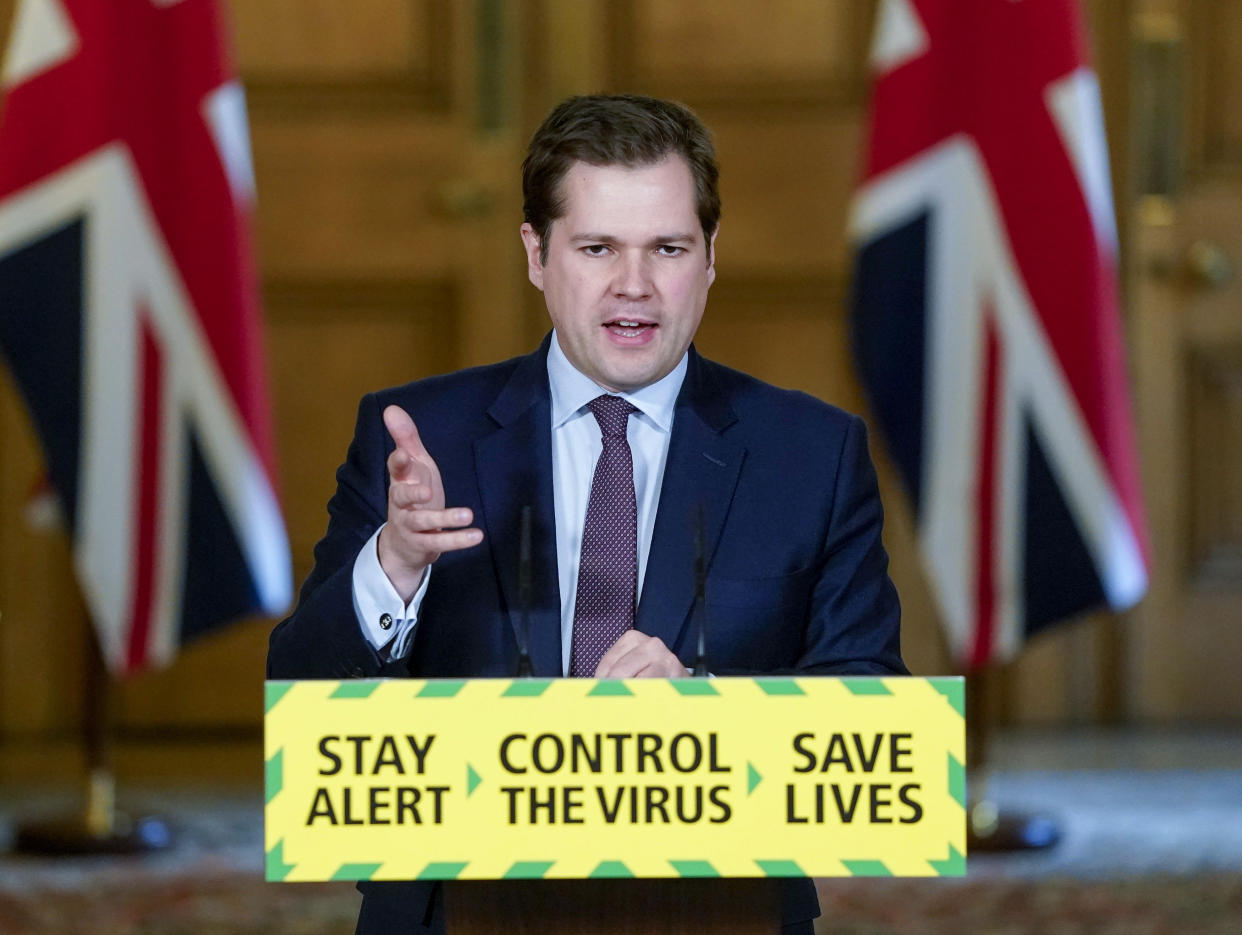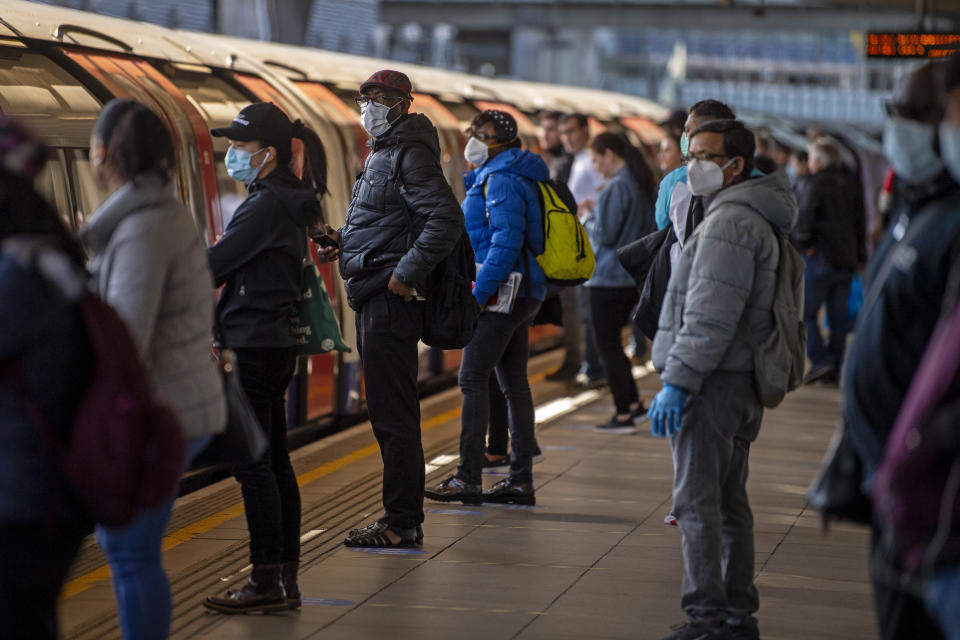Minister says he would be prepared to board a packed bus or train to commute to work

A minister has claimed he would be prepared to board a packed bus or train service to go to work after footage emerged of commuters using overcrowded services.
As part of his plan to ease the coronavirus lockdown, Boris Johnson advised that people in England who are unable to work from home should return to the workplace from Wednesday, avoiding public transport if possible.
Pictures and video taken on Wednesday and Thursday show commuters unable to stick to social distancing guidance on peak-time services.
When asked about the issue, housing minister Robert Jenrick said that he would be happy to use crowded public transport.

Speaking on BBC Radio 5 Live, when asked if he would take the risk, the minister responded: “Yes, I would do.
Latest coronavirus news, updates and advice
Live: Follow all the latest updates from the UK and around the world
Fact-checker: The number of COVID-19 cases in your local area
6 charts and maps that explain how COVID-19 is spreading
“We have given guidance that to protect yourself and others you could choose to wear a face covering.
“You should be taking precautions like social distancing if you can – I appreciate that isn’t always possible and some of the scenes… show buses and Tubes too full to be able to sit two metres apart and that’s a problem.
“That’s one of the reasons why we are trying to encourage as many people as can to drive to work – if they have a car – or to walk or cycle.”
Transport for London (TfL) confirmed there were 10% more Tube journeys made between 5am and 6am on Thursday than the same period last week.
England's roads saw an increase in weekly traffic on Monday after the Prime Minister announced his “roadmap” for easing lockdown.

Reports of busier buses and trains emerged despite Johnson advising people to try and avoid public transport.
The government has been accused of sending mixed messages and causing confusion over its stance on returning to work and other social distancing measures – such as meeting family and friends in outdoor spaces – as it unveiled its new three-stage “COVID-19 Recovery” strategy.
Unions have since threatened to stop rail services if they become too busy and pose a health risk to staff and passengers.
Mick Cash, the secretary general of the Rail, Maritime and Transport (RMT) union, told Sky News: “If that's what needs to be to keep people safe, then we will stop trains.
“We've been running train and bus services throughout this crisis and have been facing problems with much-reduced services.
“Our members have been very worried about how passengers are congregating on the trains and the buses and the impact that this is going to have.”
Coronavirus: what happened today
Click here to sign up to the latest news, advice and information with our daily Catch-up newsletter

 Yahoo News
Yahoo News 

